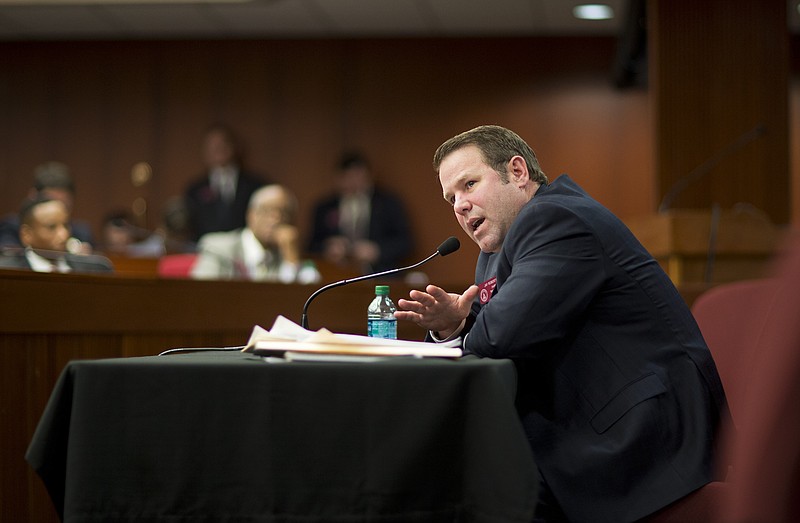A Georgia bill to increase transportation spending by hundreds of millions of dollars is going to the House floor.
On Wednesday afternoon, the Transportation Committee overwhelmingly approved HB 170, the bill that increases tax on motor fuel in Georgia. The Committee chairman, Rep. Jay Roberts, R-Ocilla, introduced several changes to the bill, which the committee had debated during three previous hearings.
If passed, the new version of the bill will let local governments charge 1.25 percent in sales tax instead of the originally proposed 1 percent. This is supposed to help heal wounds among county and city officials, many of whom have complained about the transportation bill because it takes away their control of sales tax on gas.
Right now, local officials can charge sales tax at the pump like they do in stores.
Also, under the transportation bill, all tax money off motor fuel must be spent on transportation.
Losing control of gas tax revenue will hurt some counties more than others. For example, gas stations account for 40 percent of Dade County's sales tax revenue.
Currently, Georgia residents pay a 4 percent sales tax at the pump, plus a 7.5 cent excise tax. The new bill will charge no sales tax and instead rely on a 29.2 cent excise tax, a charge that is a fixed rate, no matter the rest of the price for gas.
According to analysts at the Georgia State University Fiscal Research Center, HB 170 will raise transportation funding by $700 million a year in 2016 and $1.04 billion a year by 2020.
"If we don't move forward and believe that transportation is important in this state, we're going to send the wrong message," Roberts said Wednesday. "That investment is going to continue to let us sell Georgia from a business perspective."
The new version of the bill also eliminates tax credits for purchasing alternative-fuel vehicles. Right now, Georgia drivers can get a tax credit of up to $2,500 for low-emissions vehicles and up to $5,000 for zero-emissions vehicles.
Roberts announced one other change. In the earlier version of the bill, no gas tax revenue could be spent on education. Now, local governments can spend a portion on schools, so long as that money is spent on transporting students.
Rep. Tommy Benton asked Roberts if that money could go anywhere other than on school buses. Roberts said it could.
"Will you give me an example?" Benton asked.
"School bus shops," Roberts said. "They can buy the parts. ... Running the bus shop. Paying the bus drivers."
Contact Staff Writer Tyler Jett at tjett@timesfreepress.com or 423-757-6476.
